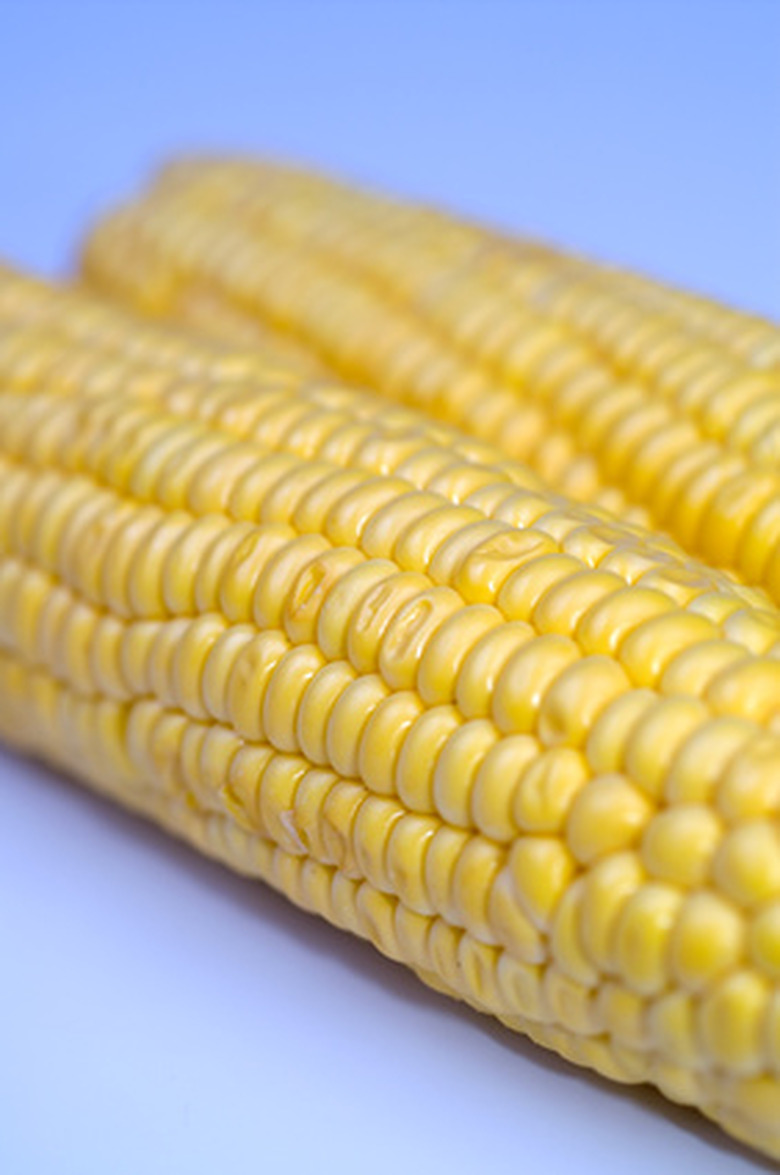What Is Roundup Ready Corn?
Genetically modified (GM) crops have taken an increasing share of the U.S. seed market. One trait that seems especially popular with farmers is herbicide tolerance (HT). Roundup Ready Corn is resistant to a common herbicide called glyphosate.
Types
Types
Roundup is the brand name for a product sold by the Monsanto Company; its active ingredient is glyphosate. Crops genetically engineered to be glyphosate-tolerant are often called Roundup Ready crops, although the term is actually a registered trademark of the Monsanto Company and technically refers only to a brand of seed crops sold by Monsanto.
Function
Function
Glyphosate kills plants by inhibiting an enzyme their cells use to synthesize amino acids, molecules the plants need to make protein. By introducing a gene into the plant cells, scientists have been able to produce plants that can survive herbicide unscathed, enabling farmers to apply glyphosate as a weed-killer without worrying about the effect on their crop.
Features
Features
Genetically engineered crops often combine herbicide tolerance with pest resistance, since both are highly desirable traits. Both Roundup Ready Corn and other GM varieties have rapidly risen in popularity with American farmers, although persistent controversy over GM crops has stalled their widespread acceptance in Europe and some Asian countries.
Considerations
Considerations
If crop plants cross-pollinate with wild relatives, their progeny could inherit the herbicide tolerance trait, thereby creating weeds that resist herbicides. There is some evidence that this has already taken place and that some weeds, such as ryegrass and horseweed, may have acquired varying levels of glyphosate resistance.
Controversy
Controversy
Proponents of biotech crops believe Roundup Ready Corn and other similar innovations enable farmers to maximize their yield and their profits, and that biotech crops are essential to feed a fast-growing world population. Opponents, such as the Union of Concerned Scientists, argue that the benefits of GM crops are exaggerated and that GM crops could create environmental problems.
Cite This Article
MLA
Brennan, John. "What Is Roundup Ready Corn?" sciencing.com, https://www.sciencing.com/roundup-ready-corn-6762437/. 24 April 2017.
APA
Brennan, John. (2017, April 24). What Is Roundup Ready Corn?. sciencing.com. Retrieved from https://www.sciencing.com/roundup-ready-corn-6762437/
Chicago
Brennan, John. What Is Roundup Ready Corn? last modified March 24, 2022. https://www.sciencing.com/roundup-ready-corn-6762437/
